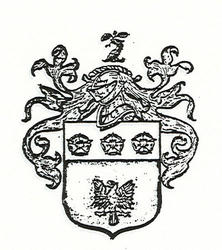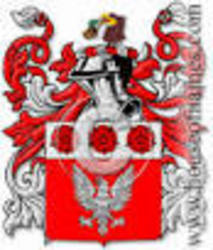LINTON Surname
Welcome to the LINTON Surname page
Origin of the Linton Surname
Terry Louis Linton © 1977
Origin of the Linton Surname (booklet, Terry L. Linton © 1977)
LINTON Chronicles © 1984
Linton Research Fund Inc. © 1988
LINTON & BIRD Chronicles, Volume VI, Issue 2, Summer © 2011, ISSN 1941-3521
Linton Name Meaning
Scottish, northern Irish, and English: habitational name from any of the numerous places so called, found in the Scottish Borders and in various parts of England. The second element is in all cases Old English tun ‘enclosure’, ‘settlement’. In the case of Linton in Northumberland the first element is a British river name, Lyne (related to Welsh lliant ‘stream’), while Linton in Kent is ‘estate associated with a man called Lill or Lilla’. The other places of this name normally have as their first element Old English lind ‘lime tree’ or lin ‘flax’, but occasionally perhaps hlynn ‘torrent’ or hlinc ‘hillside’. (On the basis of geographical situation the meaning ‘torrent’ would be appropriate to Linton near Skipton in West Yorkshire).
Source: Dictionary of American Family Names © 1970, Oxford University Press ISBN 0‑19‑508137‑4
Linton Surname Origin
(Locality). From Lin, a lake or pool, and ton, a town. A parish in Roxburgshire, Scotland.
Source: An Etymological Dictionary of Family and Christian Names With an Essay on their Derivation and Import; Arthur, William, M.A.; New York, NY: Sheldon, Blake, Bleeker & CO., 1857.

Scottish LINTON Coat of Arms & Crest, pen & Ink illustration, by Terry Louis Linton, © 1977 All Rights Reserved Linton Research Fund Inc., Publication © 1987, Reproduction in whole or in part without written permission is prohibited.
The Ancient History of the Distinguished Surname Linton
Histories and Bibliography © 1984-89 Hall of Names Inc.
reprinted LINTON Chronicles © 1984
Linton Research Fund Inc. © 1988
reprinted LINTON & BIRD Chronicles, Volume VI, Issue 2, Summer © 2011, ISSN 1941-3521
The Border region of England and Scotland produced some of the most illustrious family names the world has ever known, names such as Armstrong, Nixon, Graham, Bell, Carson, Hume, Irving, Rutherford, and so on and included in this group is the surname Linton.
Professional analysts have researched the history of lowland Scotland and northern England, including many private collections of genealogical records, the Inquisitio, the Exchequer Rolls of Scotland, the Ragman Rolls, The. Hearth Rolls, the Domesday Book:, parish cartularies, baptismals, and tax rolls and revealed that the first record of the name Linton was found in Peebles where they were seated from early times and their first records appeared on the early census rolls taken by the early Kings of Britain to determine the rate of taxation of their subjects.
Different spellings of the name were found in the archives, each alternate. linked to tile root source of the surname. Your name, Linton, occurred in many references, from time to time the surname was spelt Linton, Lynton, Lintern, and. these changes, in spelling Frequently occurred, even between father and son. Scribes and church officials recorded the name from its sound, sometimes changing the spelling on each occasion of the same persons birth, death or marriage.
The family name Linton is believed to be descended originally from the Strathclyde Britons, This ancient, founding race of the north were a mixture of Gaelic/Celts whose original territories ranged from Lancashire in the south, northward to the south bank of the River Clyde in Scotland. From 400 A.D. to 900 A.D. their territory was overrun firstly by the Irish Gaels, then the Angles from the east, and, finally the Picts and Dalriadans from the north. However, their basic culture remained relatively undisturbed. By 1000 A. D. the race had formed into discernible Clans and families, perhaps some of the first evidence of the family structure in Britain.
By the 16th and 17th centuries many of our modern family names descended directly from this ancient race, including Linton. Tracing its ancient development, the name Linton was found in Peebles where they were recorded as a family of great antiquity seated at Linton with manor and estates in that shire, in 1160 by a grant of King David of Scotland. That village is now West Linton and the Lintons branched to Roxurghshire where Linton is now the village name. East Linton is in East Lothian where they also held lands. In 1285 Phillip Lynton was Constable of Berwick, and the same Phillip rendered homage to King Edward I of England on his brief conquest of Scotland in 1296, along with two Adam Lintons of Edinburgh. By 1376 the family had branched to Scralyne. They also branched south to Cambridge and Hereford in England. Their present family seat is at Drumerick. Notable amongst the family at this time was Linton of Berwickshire.
The border of England and Scotland was created on a line from Carlisle to Berwick in the East. Many Strathclyde families straddled the border but continued to be unified clans, powers unto themselves.
After 1000 A.D., border life was in turmoil. In 1246, 6 Chiefs from the Scottish side and 6 from the English side met at Carlisle and produced a set of laws governing all the border Clans. These were unlike any laws prevailing in England or Scotland or, for that matter, anywhere else in the world. For example, it was a far greater offence to refuse to help a neighbor recover his property, wife, sheep, cattle or horses than it was to steal them in the first place. Hence the expression Ahot trod@, or, Aa hot pursuit@, from which we get the modern 'Hot to trot'. For refusal of assistance during a 'Hot Trod', a person could be hanged on the instant, without trial. Frequently, the descendants of these clans or families apologetically refer to themselves as being descended from Acattle or horse thieves@ when, in fact, it was an accepted code of life on the border.
In 1603, the Union of the Scottish and English crowns became reality under King James VI of Scotland, who was also crowned King James 1st of England. The Crown dispersed these Aunruly border clans=, clans which had served loyally in the defense of each side. The unification of the governments was threatened and it was imperative that the old Aborder code@ should be broken up. Hence, the Border Clans were banished to England, northern Scotland and to Ireland. Some were outlawed directly to Ireland, the Colonies and the New World.
Some of the Border Clans settled in Northern Ireland, transferred between 1650 and 1700 with grants of land provided they Aundertook@ to remain protestant. They became known as the AUndertakers.@ Many became proudly Irish. There is no evidence that the family name migrated to Ireland, but this does not preclude the possibility of their scattered migration to that country.
Many were dissatisfied with life in Ireland, and sought a more rewarding life. They looked to the New World and sailed aboard the AWhite Sails@ an armada of sailing ships such as the Hector, the Rambler, and the Dove which struggled across the stormy Atlantic. Some ships lost 30 or 40% of their passenger list, migrants who were buried at sea having died from diseases and the elements.
In North America, some of the first migrants which could be considered kinsmen of the family name Linton and their spelling variants were Richard Linton settled in Virginia, in 1663, George Linton settled in Maryland in 1775; John Linton settled in Nova Scotia in 1774; John, Josiah, Mary, Leah, Robert, Samuel, Wellington and William Linton all arrived in Philadelphia between 1772 and 1872. The migrants formed wagon trains westward, moving to the prairies or the west coast. During the American War of Independence those that remained loyal to the Crown moved north into Canada and became known as the United Empire Loyalists.
There were many notable contemporaries of this name Linton, Bernard Linton, Journalist.
The most ancient grant of a Coat of Arms found was Red with a silver eagle at the top three red roses.
The Crest is an eagle's head with an acorn in its beak.
Below: LINTON coat of arms Belgem - English
How did last names originate?
By ARKADY LEOKUM © 1985
Reprinted 1986 LINTON Chronicles
reprinted LINTON & BIRD Chronicles, Volume VI, Issue 2, Summer © 2011, ISSN 1941-3521
A first name was all anybody had for thousands of years. Then, about the time the Normans conquered England in 1066, last names, or sur‑names, were added to identify people better. The first name wasn't enough to set one person apart from another. For example, there might be two Davids in town, and one of them was quite lazy. So people began to call this one "David, who is also lazy," or David do little." And this became David Doolittle.
Once people got into the habit of giving a person two names, they thought of many ways of creating this second name. One way was tomention the father's name. If John had a father called William, he might be called John Williamson, or John Williams, or John Wilson (Will's son), or John Wills.
Another good way to identify people with second names was to mention the place where they lived or came from. A person who lived near the woods might be called John Green.
And then, of course, the work that a person did was a good way to identify him. So we have last names like Smith, Taylor and Wright. ("Wright" means someone who does mechanical work.)
The nearest thing to last names in ancient times existed among the Romans. A second name was some‑times added to indicate the family or clan to which a child belonged.
Later, they even added a third. name, which was a kind of descriptive nickname. By the way, the last names were originally called "ekenames." The word "eke" meant "also." And we got our word "nickname" from this word.
__________________________
Linton Research Fund, Inc., HOME PAGE
The LINTON & BIRD Chronicles on Facebook
"Thanks for Visiting, come back when you can stay longer" Terry Louis Linton © 2007
